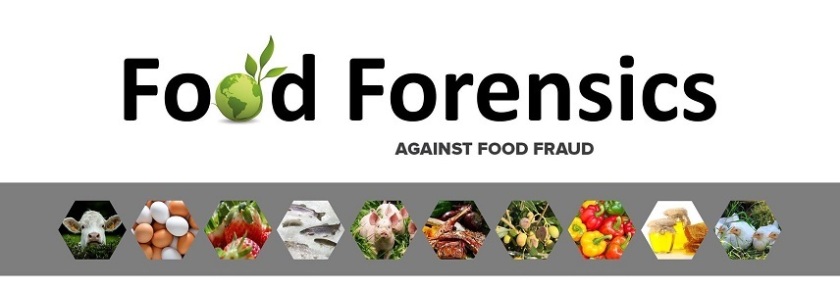The Cutting Edge of Medical Technology Content, Community & Collaboration
A recent admission by The U.S. Department of Agriculture’s Office of the Inspector General of its failure to review required documents for products labeled as “organic” indicates a lack of controls at U.S. borders, increasing the likelihood of nonorganic products entering the U.S. under false “organic” labels.
This opens the floodgates for the entry of dubious products into the market and getting passed off as organic, without being that. In fact, many imported products that carry the organic label are not only completely non-organic; they contain GMO and pesticides.
There is no guarantee that those who consume what are labeled as organic food are consuming food that is free of adulteration by pesticides, cross contaminants, and other hazards. This, despite the establishment in 2002 of the National Organic Program (NOP) standards, which prohibit the use of sewage sludge, GMO, ionizing radiation, synthetic pesticides, synthetic fertilizers, antibiotics, growth hormones, artificial preservatives, flavors, and dyes, and cover specific labeling rules or products labeled as organic.
Whopping food fraud costs
Globally, food fraud losses are put at between $10 and $15 billion a year. As thousands of U.S. companies buy, process and sell organic products and with the organic food industry expanding in a big way by the day; there is a pressing need to protect the consumer, the industry and brand identity investment and curb pricing variations and food fraud. With organic sales jumping 23% in 2016 according to a report from Packer; the need for stopping fraudulent practices is greater than ever before.
 https://compliance4all14.files.wordpress.com/2018/06/cover.jpg?w=150 150w, https://compliance4all14.files.wordpress.com/2018/06/cover.jpg?w=300 300w, https://compliance4all14.files.wordpress.com/2018/06/cover.jpg?w=768 768w, https://compliance4all14.files.wordpress.com/2018/06/cover.jpg 856w" sizes="(max-width: 709px) 85vw, (max-width: 909px) 67vw, (max-width: 1362px) 62vw, 840px" />
https://compliance4all14.files.wordpress.com/2018/06/cover.jpg?w=150 150w, https://compliance4all14.files.wordpress.com/2018/06/cover.jpg?w=300 300w, https://compliance4all14.files.wordpress.com/2018/06/cover.jpg?w=768 768w, https://compliance4all14.files.wordpress.com/2018/06/cover.jpg 856w" sizes="(max-width: 709px) 85vw, (max-width: 909px) 67vw, (max-width: 1362px) 62vw, 840px" />
One of the actions taken by The US Department of Agriculture is punishing violating companies with fines up to $11,000 and encouraging reporting complaints. The USDA also lists fraudulent organic certificates and all companies legally certified as organic. There is an urgent need for food companies to review and develop new tools and technology designed to provide data that tracks and traces organic product through all processes in order to build a preventive supply chain.
Learning on how to handle organic food fraud
A webinar from Compliance4All, a leading provider of professional trainings for all the areas of regulatory compliance, will explain these aspects in detail and will show what steps a food industry company can take to handle organic food fraud and prevent potential pesticide cross contamination from previously carried loads.
John Ryan, a highly regarded senior Quality professional, whose quality system career has spanned the manufacturing, food, transportation and Internet industries over the past 30 years, will be the speaker at this webinar. Dr. Ryan brings the rich experience of working and living extensively throughout Asia and the U.S. at the corporate and facility levels for large and small companies as a turn-around specialist. His company, Ryan Systems, works with some of the world’s leading equipment, hardware, software, training and integration companies in the business.
Please visit http://bit.ly/2JdiRHi to enroll for this valuable session.
At this webinar, Dr. Ryan will cover the following areas:
- NOP Standards
- Verifying the Source Organic Food Shipments
- Controls Over Transportation of Fresh Organic Foods
- Cross Contaminants – Sanitation Specifications
- Procedures and Controls
- Control over Previous Loads
- Lack of Border Controls
- Temperature Controls
- Inspection
- Food Security
- Farmers’ Markets
- A tracking solution that allows shippers, carriers and receivers to record and review data focused on
- Tracking organic shipments from the source
- Checking the shipment source against the NOP approved data base
- Checking to assure the container or trailer for organic shipment has been cleaned according to shipper/receiver specific requirements
- Assuring the container has been properly sealed
- Assuring the temperature has been maintained throughout all shipment handoffs
- Verifying conditions at the receiving end
- Maintaining a complete record of all transactions
- The NOP site to help you assure you are dealing with organic certified suppliers.
Views: 13
Comment
© 2025 Created by CC-Conrad Clyburn-MedForeSight.
Powered by
![]()
You need to be a member of MedTech I.Q. to add comments!
Join MedTech I.Q.